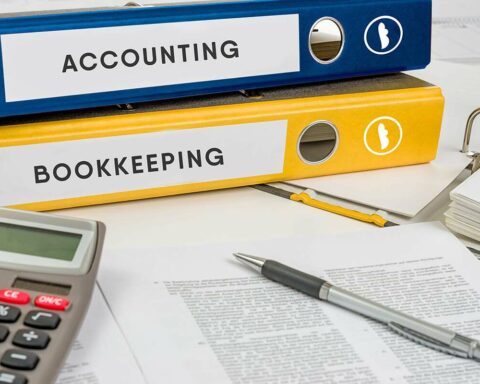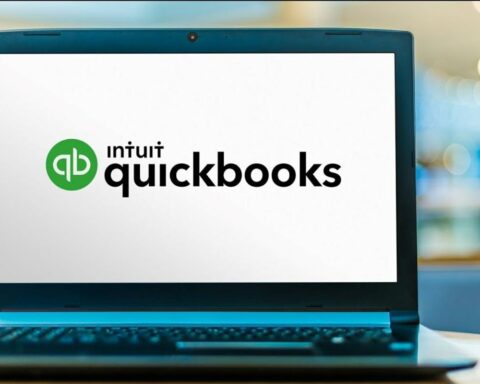When beginning a new business, one of the most significant steps is to incorporate the company, commonly known as registering a business name.
In contrast to applying for self-assessment with HMRC, a lone proprietor doesn’t need to register a business name to do business legally. If, on the other hand, you are starting a private limited company, you are obliged by law to register a business name with the appropriate authorities.
There are advantages to doing so, such as the possibility of reduced tax liability. You will also be able to reserve a name for your company, which will make things simpler for you if you decide to apply for a trademark later.
There were 810,316 new businesses established in the year 2021. Companies House, which is the official registrar of enterprises in the UK, is where most firms choose to register. However, the website has a lot of jargon exclusive to the sector, making it difficult to understand.
Once you understand what is required, registering a company name is a straightforward process that can be completed in a short amount of time.
In the following, we have described several points regarding registering a business name in the UK so that you can successfully file an application for a company name and begin your exciting path toward being a business owner.
What is registering a business?
Every new business in the UK should register their business with HMRC. At its most fundamental, this entails informing the tax office of your company’s existence and demonstrating that it is current with all applicable tax payments.
To legally operate as a limited liability company, you must register your business with the United Kingdom’s Companies House. This procedure involves a significant amount of additional administrative work.
Why should you register your business?
It is always best to keep within the rules and register your business as soon as possible. The time it is conceivable that you may get away with operating your business unregistered for a while, it is always preferable to stick within the legality. It will be essential once you start dealing with things like insurance; it is the only way for your company to be legally recognized.
Keep in mind that if you begin hiring employees, you may be required to register as an employer, and the only way you can do this is if your business is already registered. If your business is not registered, you will not be able to register as an employer.
Make sure you are well aware of the dates on which you are required to register a business. Keeping your business well organized and ensuring that everything is above board are two of the best ways to lessen the stress of owning a business and protect yourself from incurring costly penalties in the future.
How can you register a new business with HMRC?
It is quick and simple to register a new business with HMRC, and you can do it online by following the guidelines that are provided below:
- Visit https://www.gov.uk/set-up-business
- Create your account for yourself or sign in.
- Have a look at the many alternatives for structuring a business that is shown on the website, and select whether or not you will be operating as a “sole trader,” “limited company,” or “business partner.”
- After making your selection, go to the applicable option and click it. Then, follow the steps and provide any information that is requested.
Online registration shouldn’t take more than an hour, and after you’re through, you’ll get a separate mailing including your Unique Taxpayer Reference (UTR) number. After that, you’re good to go! Once you have this, you can formally finish registering a business.
Choose a business structure to register-
Before you register a business, you will need to decide on the legal framework governing your company. This will define who has a financial obligation for the firm, which makes management choices, how much tax you will pay, what documents you are required to maintain, who makes management decisions, and how you generate money. You may choose from these three main paths:
1. Becoming a Sole Proprietor
Becoming a sole proprietor is your company’s most basic legal structure since it requires minimum form completion and does not need you to submit accounts with Companies House (companieshouse.gov.uk). You must notify HMRC that you want to work for yourself and register a business name before you can begin operations.
How Does Sole Proprietor Work?
As a sole trader, you own your company wholly and retain all of the business’s income after taxes. The law makes no distinction between you and your company, which means that you will carry full legal and financial responsibility if the business fails.
Advantages Of Sole Proprietor
- There isn’t much paperwork to fill out.
- Any profit made by the company after taxes is yours to retain.
- You have complete control over your company.
- Accountants often charge lesser fees for sole proprietorships since there is less work for them. As a single proprietor, you are just needed to keep a profit and loss statement.
Disadvantages Of Sole Proprietor
- Your company’s responsibility is limitless. This implies that you will be personally accountable for any debts incurred by your firm, and your house or other assets may be in danger if your business fails.
- Because the law considers you and your company to be one thing, you will be personally accountable if a consumer sues you.
- You may have a more difficult time selling the company.
2. Beginning a Limited Liability Company
Directors of a limited company are not personally accountable for the debts or other obligations of the firm even if the company enters financial difficulty since the corporation is its legal entity. A limited liability corporation has higher start-up costs and greater administrative burdens than a sole proprietorship, but it carries less risk.
Since the business, not you, keep the earnings, being paid as an employee may be more tax efficient. You can choose to invest in the firm and get dividends by becoming a shareholder.
How Does Limited Liability Company Work?
It is necessary to register (or “incorporate”) with Companies House before doing business as a limited company. One director is required at all times for limited liability businesses. Each year, they must have their books audited and submit them to Companies House.
Necessary Documentation
There are four documents required for forming a limited liability company:
- A Memorandum of Association outlining the company’s goals and obligations in addition to its name, address, and scope of operations.
- Organizational documents called Articles of Association outline the company’s governance structure.
- Statement of the First Directors, Secretary, and Registered Office (Form 10) identifies the location of the registered office, lists the first directors and their addresses, and provides contact information for the company’s secretary.
- The Companies Act requires all businesses to file Form 12, or the Declaration of Compliance with the requirements of the Companies Act, to prove they comply with the law.
Advantages Of Limited Liability Company
The shareholders of a limited liability company are not personally liable for the company’s debts. In the event of a business failure, creditors may confiscate the company’s assets but not the owners’ personal belongings unless they have been pledged as collateral for a loan.
- Customers and vendors can trust a limited liability corporation more than a lone proprietor.
- Funding can be simpler if you form a limited liability corporation.
- As opposed to operating as a sole proprietor, selling a portion of your company is less difficult.
3. Establishing a Partnership
Registering as a partnership allows you to share the expenses, obligations, and dangers of running a company with one or more individuals. A partnership is only a means of connecting two or more independent contractors in a straightforward economic structure.
Unlike a limited corporation, it has no legal character. Unless otherwise specified in the partnership agreement, the partners split the partnership’s earnings and gains.
Advantages Of Partnership
- A partnership is an easy and adaptable option for two or more individuals to own and manage a company jointly.
- As all partners remain independent contractors, you won’t need to inform the Corporations House or deal with any administrative or accounting obligations that apply to limited companies.
- You will gain from a shared responsibility, mutual support, and inspiration.
Disadvantages Of Partnership
- You must be certain that your partners are entirely trustworthy since they are all individually accountable for any debts the company accrues. Though the company has financial difficulties, creditors may seize your assets to satisfy obligations, even if you contributed less than another partner and they created the debts.
- If a partner withdraws from the partnership, the other partners may be held responsible for the firm’s total debt.
- The ordinary partnerships are not obliged to submit their financial information with Companies House; other businesses may be hesitant to work with them due to the lack of transparency.
- A relationship breakup may be difficult and costly. To cover all facets of the partnership and what to do if anything goes wrong, partners must draught a thorough Partnership Agreement.
- Since the partnership has no legal character, it must be dissolved right once one of the partners leaves the company (via death, resignation, or bankruptcy).
What registration numbers will your business be allowed?
The format of your company registration number will vary depending on your organization’s business structure and the nation in which you were founded. At the same time, business registration numbers in the UK are usually eight characters long.
Format for limited firms’ CRNs
Your business registration number will be eight digits if you form a limited company in England or Wales.
Company registration numbers in Scotland and Northern Ireland begin with two letters and six digits. Limited firms registered in Scotland have CRNs that start with “SC,” whereas those registered in Northern Ireland have CRNs that start with “NI.”
Format for LLP CRNs
A business registration number of two letters and six digits is assigned to each LLP in the UK, albeit the letters might differ from one jurisdiction to the next. CRNs for LLPs in England and Wales begin with “OC,” those in Scotland with “SO,” and those in Northern Ireland with “NC.”
What happens once your business is registered?
The HMRC will have a record of you as an official firm after you have successfully registered a business. Depending on the method of registration that you used, you will be able to begin doing business under the company name as soon as you get confirmation from either HMRC or Companies House.
If you choose to operate your business as a single proprietor, you are responsible for doing your own annual tax self-assessment. You are the one who has to keep this in mind at all times. Keeping detailed records of the revenue and spending of your company can assist in simplifying the process of filing tax returns.
To keep your personal finances and those of your company distinct, opening a business account that is distinct from the one you use for your personal affairs is a smart idea for solo proprietors.
FAQ-
Do I need to register my business name?
If you are planning to establish a limited company, however, registering a business name is an essential step in the formation process. If you are operating as a sole proprietorship, this step is not required. However, sole proprietors are required to register with the HMRC for self-assessment. This indicates that you will be able to pay your yearly tax obligation.
Can you start a business without registering?
If you run your business as a sole proprietorship without registering your corporation, you are well within your rights to do so. Bear in mind, however, that doing so will not provide you any sort of legal protection if you find yourself in debt or are subject to legal action.
What happens if I don’t register?
If you do not register the business name of your company, it will be more difficult for potential new clients to locate you. Both your company’s name and its location won’t be changed very soon. Any company name that a previous occupant used will continue to be registered with your premises.
What are the advantages of registering?
The council will notify you of all the services relevant to your company, such as the Emergency Services, the Royal Mail, Waste Management, and the Utilities so that you don’t have to.
You’ll have easy access to their services, and your clients will have no trouble locating you when they need your products or services.
What do I do if my business stops trading?
If you decide to quit trading, you are requested to get in touch with the address management team:
Email – streetnaming.numbering@eastriding.gov.uk
Phone – (01482) 393647
Post
Address Management Team
Planning and Development Management
East Riding of Yorkshire Council
County Hall
Beverley
HU17 9BA
Conclusion
It shouldn’t be too difficult to register a business as long as you know these basic procedures outlined above. When it comes to establishing your company in the United Kingdom, there is a wealth of information that can be found online, and the government’s official website is an excellent and fairly essential resource.






